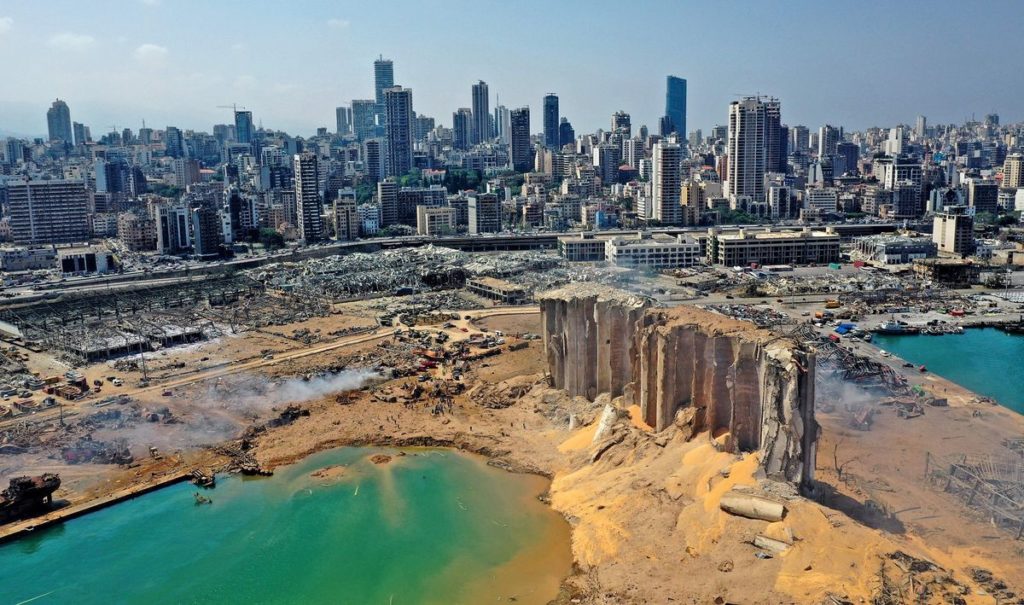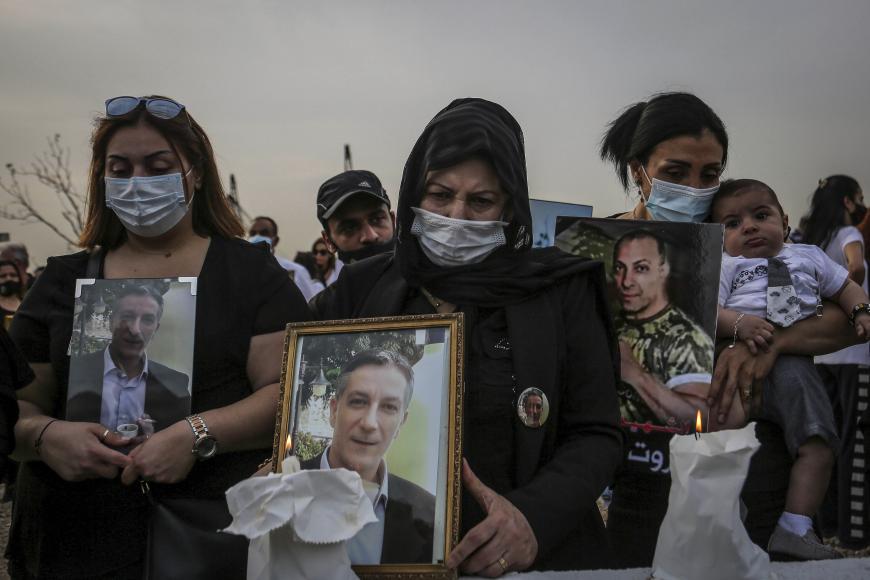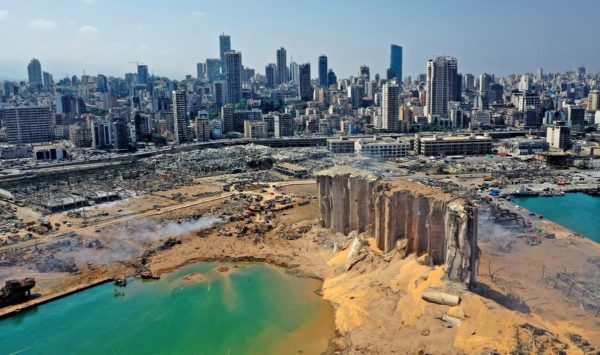(Beirut) – Lebanon

– Member states at the United Nations’ Human Rights Council should establish an international, independent, and impartial investigative mission, such as a one-year fact-finding mission, into the Beirut port explosion of August 4, 2020, 53 Lebanese, regional, and international rights groups and individuals, as well as 62 survivors and families of the victims and firefighters said today in a joint letter.

In the aftermath of the blast, Lebanese officials vowed to investigate swiftly and transparently. However, the 10 months since the tragedy have been marked by little more than obstruction, evasion, and delay. Human Rights Watch has documented many flaws in the domestic investigation that make it incapable of credibly delivering justice, including flagrant political interference, immunity for high-level political officials, lack of respect for fair trial standards, and due process violations.
“The Lebanese authorities have had over 10 months to demonstrate that they are willing and capable of conducting a credible investigation into the catastrophic Beirut Blast, but they have failed on all accounts,” said Aya Majzoub, Lebanon researcher at Human Rights Watch. “The Human Rights Council members should establish an international, independent probe into the causes and responsibility for the blast, heeding the calls of the victims’ families and the Lebanese public for accountability.”
On August 10, the Lebanese government referred the Beirut explosion to the Judicial Council, a special court with no appeals process. No indictments have been issued, but 37 people have been charged, 19 of whom are currently detained in conditions that appear to violate their due process rights.
On December 10, Judge Fadi Sawan, who was then leading the investigation, chargedthe caretaker prime minister, Hassan Diab, and three former ministers in connection with the blast. But Diab and two of the former ministers refused to appear for questioning, and the caretaker interior minister, Mohammad Fahmi, said that he would not ask the security forces to arrest them, even if the judiciary issued arrest warrants.
On February 18, 2021, the Court of Cassation removed Judge Sawan following a complaint lodged by two of the former ministers he charged. Judge Sawan was replaced two days later, but his removal signaled the “red line” that the courts have drawn around politicians.
The lack of accountability that has plagued the investigation dramatically illustrates the larger culture of impunity officials have long enjoyed in Lebanon. The continuing failure of the domestic process reinforces the need for an international investigation to determine the causes of the explosion and who was responsible. The cost of such a failure includes not just the absence of justice for victims, but the untenable risk of further abuse and negligence by the responsible parties, leading to even greater loss and instability in a context of a plummeting currency, devastated economy, crumbling infrastructure, and failing public services.
The right to life is an inalienable and autonomous right, enshrined in the International Covenant on Civil and Political Rights (ICCPR) (article 6), which Lebanon ratified in 1972. The Human Rights Committee, which interprets the ICCPR, has stated that countries must respect and ensure the right to life against deprivations caused by people or entities, even if their conduct is not attributable to the state.
The committee further said that the deprivation of life involves an “intentional or otherwise foreseeable and preventable life-terminating harm or injury, caused by an act or omission.” Countries are required to enact a “protective legal framework, which includes criminal prohibitions on all manifestations of violence … that are likely to result in a deprivation of life, such as intentional and negligent homicide.”
The storage of more than 2,700 tons of ammonium nitrate, alongside jugs of oil, kerosene, and hydrochloric acid, five miles of fuse on wooden spools, and 15 tons of fireworks, in a poorly secured and ventilated hangar in the middle of a busy commercial and residential area of a densely populated capital city is contrary to most national standards and likely created an unacceptable risk to life.
Further, the impact and aftermath of the explosion violated Lebanon’s international human rights obligations to guarantee the rights to education and an adequate standard of living, including the rights to housing, health, food, property, and an effective remedy.
UN-mandated investigations are “increasingly being used to respond to serious violations of international humanitarian and human rights law, whether protracted or resulting from sudden events, and to promote accountability for such violations and counter impunity.” The Human Rights Council has authorized at least 34 such investigative bodies since 2006.
It is time for the Human Rights Council to step in, heeding the calls of the families of the victims and the Lebanese people for accountability, the rule of law, and protection of human rights.
The independent investigative mission should identify what triggered the explosion and the human rights violations arising from the Lebanese state’s failure to protect the right to life, including by failing to ensure the safe storage or removal of a large quantity of highly combustible and potentially explosive material. The mission should then forward its findings and conclusions to the competent Lebanese judicial authorities.
“The Beirut port explosion was not an isolated or idiosyncratic incident. Rather, it was one highly dramatic illustration of the human rights impacts of decades of corruption, incompetence, impunity, and mismanagement by Lebanon’s ruling elite,” Majzoub said. “Without accountability for this explosion, there is nothing stopping another disaster from happening.”
Human Rights Watch


Leave a Reply
You must be logged in to post a comment.